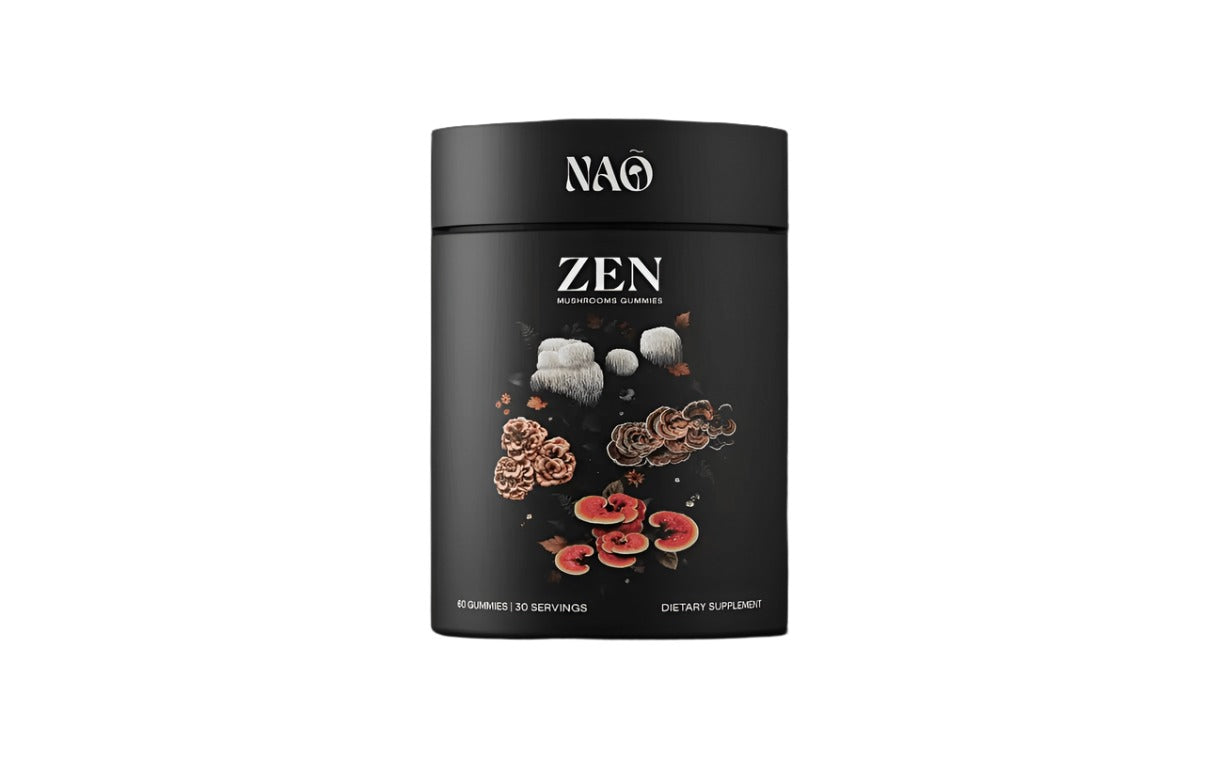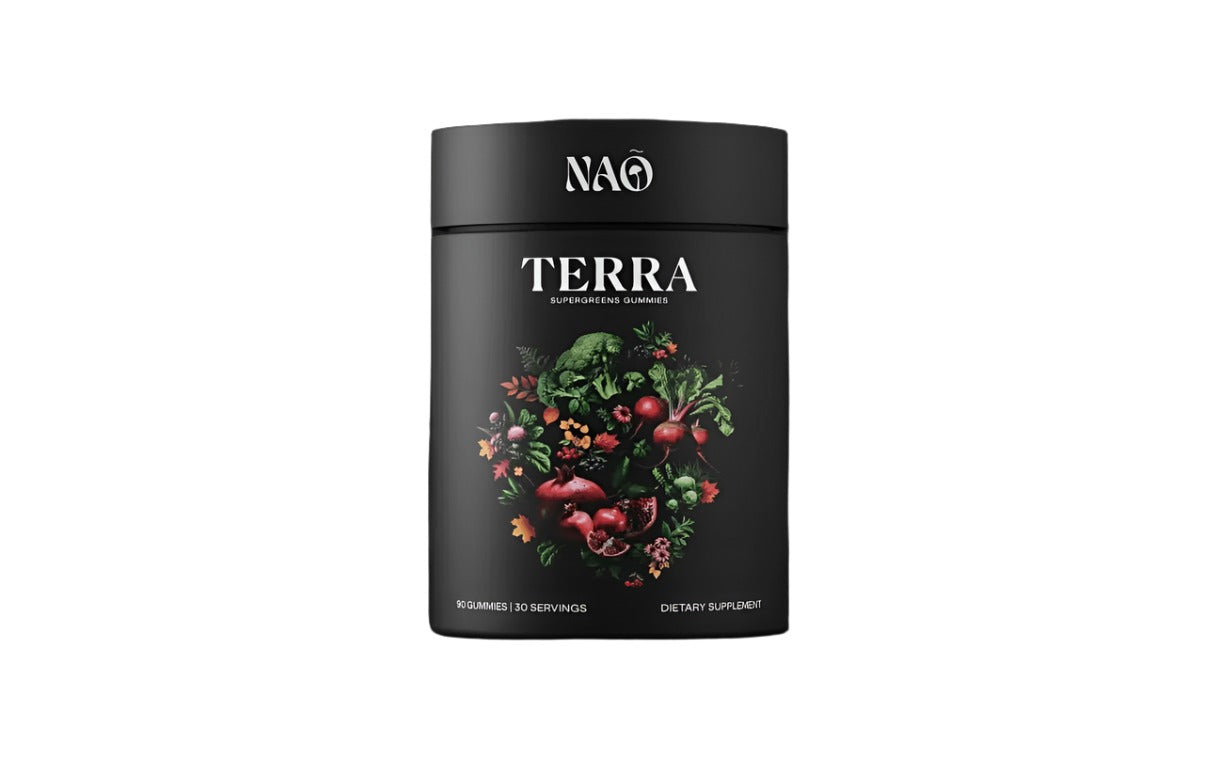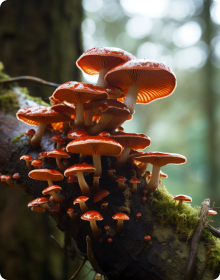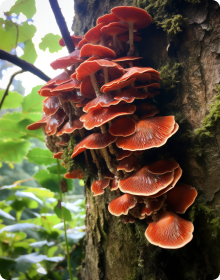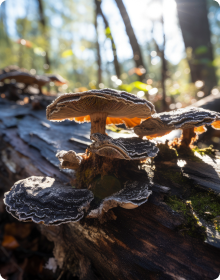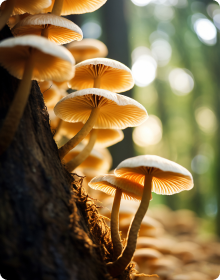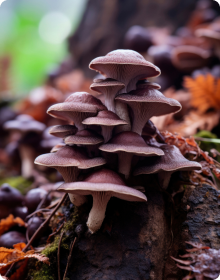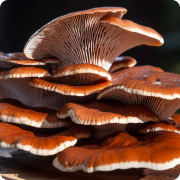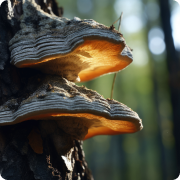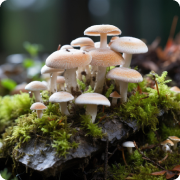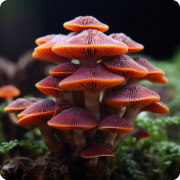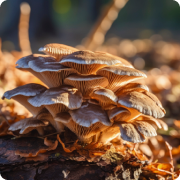Reishi mushrooms are claimed for their potential health benefits ranging from the enhancement of the immune system to the reduction of stress. However, during pregnancy, natural remedies require extra caution. The question is whether consuming Reishi mushroom during pregnancy is safe, and if such mushrooms could offer them any real benefits.
While Reishi mushrooms are known for anti-inflammatory and antioxidant activities, few research studies have been conducted regarding the effects on pregnant women. Some claim it helps improve immunity or stress management during pregnancy. However, the compounds present in the mushroom may pose risks, especially regarding blood pressure and blood thinning, both critical factors in pregnancy.
It is essential to weigh the advantages and risks involved in adding Reishi to your routine when pregnant. You need to consult with your healthcare provider to make sure this aligns with your health needs and your pregnancy.
This guide will walk you through the possible benefits, risks, and safety guidelines of consumption of Reishi mushroom in pregnancy to help you make an informed decision. Always consider your health and the safety of your baby first whenever you take any supplements during this sensitive period.
What Is Reishi Mushroom?
Reishi mushroom is also known as Ganoderma lucidum, a medicinal fungus employed in traditional Chinese medicine for several thousand years and in other ancient systems of healing. It has been one of the most extolled medicines under many names, such as “mushroom of immortality”, for its wide range of possible health benefits, promoting longevity and overall well-being.

Traditionally, Reishi was solely reserved for the emperors and the elite class because of the assumed potent properties. Today, its use has been extended to all over the world to boost immunity and in anti-inflammatory effects. It is still widely used in Eastern medicine to support immune function, improve energy, and promote relaxation.
Being consumed in different forms, it is quite easy to fit in with busy daily schedules. This includes Reishi tea, powder, mushroom gummies, and capsules, which are all sold through health food stores and online. Many choose which would best suit their lifestyle-be it in a soothing sip of tea or merely going down with an easy-swallowed capsule.
In sum, general health benefits include immune-boosting effects, a reduction in stress levels, improved sleep, and antioxidant properties ascribed to Reishi mushrooms. These properties make Reishi a rather famous natural remedy for the improvement of general health and energy level.
The next question: is Reishi safe during pregnancy?
Benefits of Reishi Mushroom During Pregnancy
Reishi mushrooms have a popular reputation for health enhancement, many of which would be useful during pregnancy. Specific research related to Reishi use in pregnancy is limited; however, some general benefits might give partial support to expecting mothers with cautious application.
The other benefit of the Reishi mushrooms is their immune-enhancing properties. Pregnancy usually makes immunity weak and vulnerable to diseases. The Reishi mushrooms contain compounds that can enhance immunity and, therefore, the general body mechanism of fighting against infection during this critical period.
It comes with a greater tendency to feel stressed out and anxious by the extreme changes the body will undergo. Reishi is known for benefits such as releasing tension and works to manage and ease anxiety, relaxation. It might work as a natural depressant of the brain, which will be very useful in pregnant women and their mood swings.
Reishi mushrooms are also believed to support cardiovascular health and improve blood circulation. In pregnancy, one does need a good circulatory system and a good heart. Although a great deal is known from general use about the cardiovascular benefits of Reishi, it has to be said that these possible benefits have not been studied, particularly in pregnant women.
Basically, though Reishi mushrooms have a variety of possible benefits related to immune support, stress release, and cardiovascular health, these are general usage claims and not specific to pregnancy. It is always best to consult a healthcare professional for any intent to use Reishi during pregnancy to make sure the intention aligns with your needs for health.
So, why is using Reishi mushroom during pregnancy useful?
Summary
- Immune-boosting properties: Reishi mushroom enhance immune responses, which improve the body's resistance processes. This can be beneficial during pregnancy because the immune system may be suppressed; this may help to decrease the chances of catching specific infections.
- Stress relief: Reishi mushrooms contain a naturally occurring adaptogenic property, meaning that it makes the human body adapt to stressors more easily. This helps decrease pregnancy-associated anxiety and allows feelings of calm that perhaps otherwise might not be common, keeping one emotionally balanced when hormones are imbalanced.
- Cardiovascular support: Reishi mushrooms could provide cardiovascular benefits by facilitating good blood circulation, hence reducing or preventing the chances of high blood pressure. Such effects could be helpful during pregnancy, where maintaining good circulation and heart health is important for both mother and baby.
- Anti-inflammatory effects: Many people believe the reishi mushroom has anti-inflammative properties that would help reduce puffiness and pain common during the gestation period in women. As Reishi reduces inflammation, thereby it helps in a healthy pregnancy.
- Improving sleep: As generally known, Reishi mushrooms have effects on inducing good quality sleep, which is often difficult to achieve during pregnancy. Its sedative effects might be beneficial for pregnant women by having deeper and more restful sleep.
- General application: While researched on the general population, it had no studies done on pregnant women about its effect. Thus, Reishi mushroom extracts are best taken only after consulting with a healthcare professional to ensure safety during pregnancy.
- Antioxidant properties: Reishi mushrooms are rich in antioxidants that help in fighting the oxidative stress in the human body. During pregnancy, this can be of prime importance in protection against cellular damage and in the overall well-being of the mother and baby.
- Energy boosting: Fatigue is very common in pregnant women, and Reishi mushrooms are thought to help with energy through increasing blood flow and making the oxygen flow in the body better. This can make pregnant ladies more energetic and less sluggish.
Potential Risks and Side Effects of Reishi Mushroom
However, using Reishi mushroom during pregnancy also has certain risks and side effects, which are considered counterproductive during pregnancy. One of the main concerns is its tendency to thin the blood, increasing bleeding in instances of childbirth or in cases of complications within the pregnancy period. Pregnant women should be cautious with Reishi, especially if they have certain conditions involved with blood clotting.

Others may have allergic reactions or stomach problems associated with using Reishi mushrooms. Some of them show an irritated stomach, nausea, or skin reactions to Reishi in cases when the use of the medicinal mushroom is new.
Another possible issue might be the influence Reishi has on blood pressure. Reishi is sometimes used to lower blood pressure levels, which might be dangerous in pregnant women who already have some conditions related to blood pressure or in those whose blood pressure tends to change during pregnancy.
But probably the most important factor is the complete lack of research into the effects of Reishi on fetal development. While there were benefits researched in basic populations, there is little to no research concerning the actual specific effects of Reishi consumption during pregnancy and hence it is rather difficult to assess how safe this mushroom is for pregnant women.
Summary
- Blood-thinning properties: Reishi mushrooms have natural blood-thinning effects, which may increase the risk of excessive bleeding during childbirth or pregnancy-related complications, especially for those already on anticoagulants or with blood clotting disorders. This makes it potentially dangerous for pregnant women, particularly during labor, delivery, or if there’s any surgical intervention required, such as a C-section.
- Increased bleeding risk during prenatal care: Regular prenatal procedures, like blood tests or invasive procedures such as amniocentesis, could carry a higher risk of bleeding complications if Reishi is consumed during pregnancy due to its effect on blood clotting.
- Allergic reactions or digestive issues: Some individuals may experience allergic reactions to Reishi, including skin rashes, itching, or swelling. Additionally, gastrointestinal side effects like upset stomach, nausea, diarrhea, or vomiting may occur. These symptoms could be particularly uncomfortable and concerning during pregnancy when digestive health is already sensitive.
- Gastrointestinal discomfort: Pregnant women often deal with digestive issues like morning sickness, heartburn, or indigestion. Reishi mushrooms may aggravate these conditions or lead to additional stomach discomfort, complicating pregnancy symptoms further.
- Blood pressure concerns: Reishi mushrooms are known to lower blood pressure, which can be beneficial for some, but during pregnancy, fluctuating blood pressure needs careful management. For women with already low blood pressure or pregnancy-related conditions like preeclampsia, Reishi’s effects could pose a risk, leading to dizziness, fainting, or other complications.
- Lack of research on fetal development: Despite its long history of use, there is a lack of clinical studies specifically focusing on how Reishi mushrooms affect fetal development. Without solid research, it’s difficult to know if Reishi poses any risks to the baby’s growth, neurological development, or overall health during pregnancy.
Safety Concerns of Reishi Mushroom in Pregnancy
So, can you take mushroom supplements while pregnant? But you have to be careful. Limited research studies suggest that it is unknown whether Reishi mushrooms can be taken safely during pregnancy. While Reishi has received considerable praise for its natural benefits to improve health, physicians usually recommend avoiding such high-dosage supplements or those taking it without any doctor’s consultation during pregnancy.

Many professionals would recommend avoiding Reishi during pregnancy because of the possible risks due to blood thinning, blood pressure changes, and unexplored fetal safety.
Reishi mushrooms can be used in pregnancy, but only with great caution. You need to consult your doctor before adding any supplement to your regimen; likewise, you should avoid self-medication via herbal remedies without expert advice. After all, health and safety regarding the mother and the baby have to take precedence, and an expert opinion is required for making the right decision in that respect.
Summary
- Uncertain safety: Limited research on Reishi mushroom during pregnancy effects.
- General advice: Avoid high doses or use without consulting a healthcare provider.
- Proceed with caution: Always consult a doctor if you want to combine Reishi mushroom and breastfeeding.
Recommended Dosages for Pregnant Women
There is no suggested safe dosage of Reishi mushroom yet for pregnant women, since there are limited studies about the effect of Reishi in pregnancy. If you choose to use Reishi while pregnant, do so with caution because of the possible risk.
If you are considering taking Reishi, it is best to begin with small amounts, about 1-2 grams a day, and carefully monitor your body for any side effects. Monitor closely your body's reaction, especially in digestion, blood pressure, and signs of allergic reaction.
The most important step before consuming Reishi mushroom in pregnancy, however, is to consult a healthcare professional. A doctor can best help weigh the risks versus benefits in relation to specific health needs and specific pregnancy circumstances you are in, hence making your decision safe for both you and your baby. Never dose yourself without medical advice; this may involve unnecessary risks.
Ok, so we have Reishi mushroom and pregnancy. How are they connected? And what about Reishi mushroom and breastfeeding?
Reishi mushrooms may be used for immune support, stress release, and improving circulation. However, the use of Reishi in pregnancy has risks during pregnancy. For much of this concern, the complete lack of specific research into the actual effects of Reishi in pregnant women due to Reishi essentially thinning the blood, possibly creating allergic reactions, and lowering blood pressure, some may consider use for general health benefits, but with extreme caution.
Because there is no standard dosage that can be declared as safe for pregnant women, it is recommended to consult the health professional before Reishi consumption. Your doctor can help you weigh the potential risks versus benefits and ensure the safety of both you and your baby. As with any supplement, the health and well-being of both mother and child should always come first.
Try Reishi mushrooms on WellNao!
